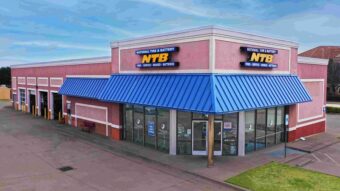As emerging demand begins to take hold in the industrial distribution market, the small, but booming niche industry of agricultural warehousing has become a haven for conservative dollars.
In early February, CresaPartners completed the disposition of four river terminals and dry product warehouse storage facilities on behalf of fertilizer
manufacturer CF Industries Holdings, Inc., to GROWMARK, Inc., a regional agricultural cooperative. The terms of the sale were not disclosed.
According to Liz Roberts, vice president with CresaPartners, CF Industries wanted to sell the properties to retool its business model. It no longer wanted to act as a terminal operator and distributor, but rather focus on being a wholesale distributor. The firm used the facilities to store both dry and liquid fertilizer product, delivered by barges from major water ways branching off of the Mississippi River. It would then be loaded on trucks and delivered to nearby agricultural communities.
“They weren’t maximizing the capacity of these facilities,” says Bradley Metzger, managing partner with CresaPartners. “They had an untapped value that was not being utilized.”
Of course, the difficulty of the transaction was pricing that “untapped value.”
As Metzger points out, when selling a property as specific as a riverside warehouse terminal, it is not possible to simply check area comps to find a suggested price.
To find a value, the firm had to look at numerous aspects of the property including the land value, replacement costs for the facility, water rights, and the potential revenue for a full-capacity distribution operation. After subtracting the facilities expenses, the team had a price range that it felt comfortable with.
Yet rather than reveal the predicted value, the firm opened up the properties to sealed bids.
Throughout the firm’s research it identified a strong list of potential buyers, yet the actual process exceeded their expectations as to how many firms would actually take part in the bidding.
“We had more than 30 firms walk through the facilities and we eventually received a dozen bids in the first round,” says Roberts. “Many of the firms that bid we expected, but we did also had a number of firms that are not even in the agricultural business bid. There is definitely an interest in the agricultural supply chain right now.”
The entire process, from bringing the properties to market in August to their eventual closing in February, took a total of six months, which is “very quick” in the industry and further demonstrates the market’s demand, says Metzger.
“We figured there would be a hungry market for the properties,” says Metzger. “Agricultural companies are flush (with capital). They are going through a boom right now.”
Metzger and his team at CresaPartners set a price range that it wanted to achieve and that the eventual winning bid from GROWMARK was at the “high end” of the price range.
“A lot of firms are looking at agricultural real estate as a hedge against inflation right now,” says Metzger. “It is not without risk, but it is a conservative investment.”
The portfolio included facilities located on major navigable rivers near located in St. Louis, Mo., Cincinnati, Ohio, Peoria, Ill. and Albany, Ill.
The CresaPartners team for this transaction also included Sheila Matuscak, managing partner; Chad Bermingham, vice president; and Robert Wheeler, vice president.



